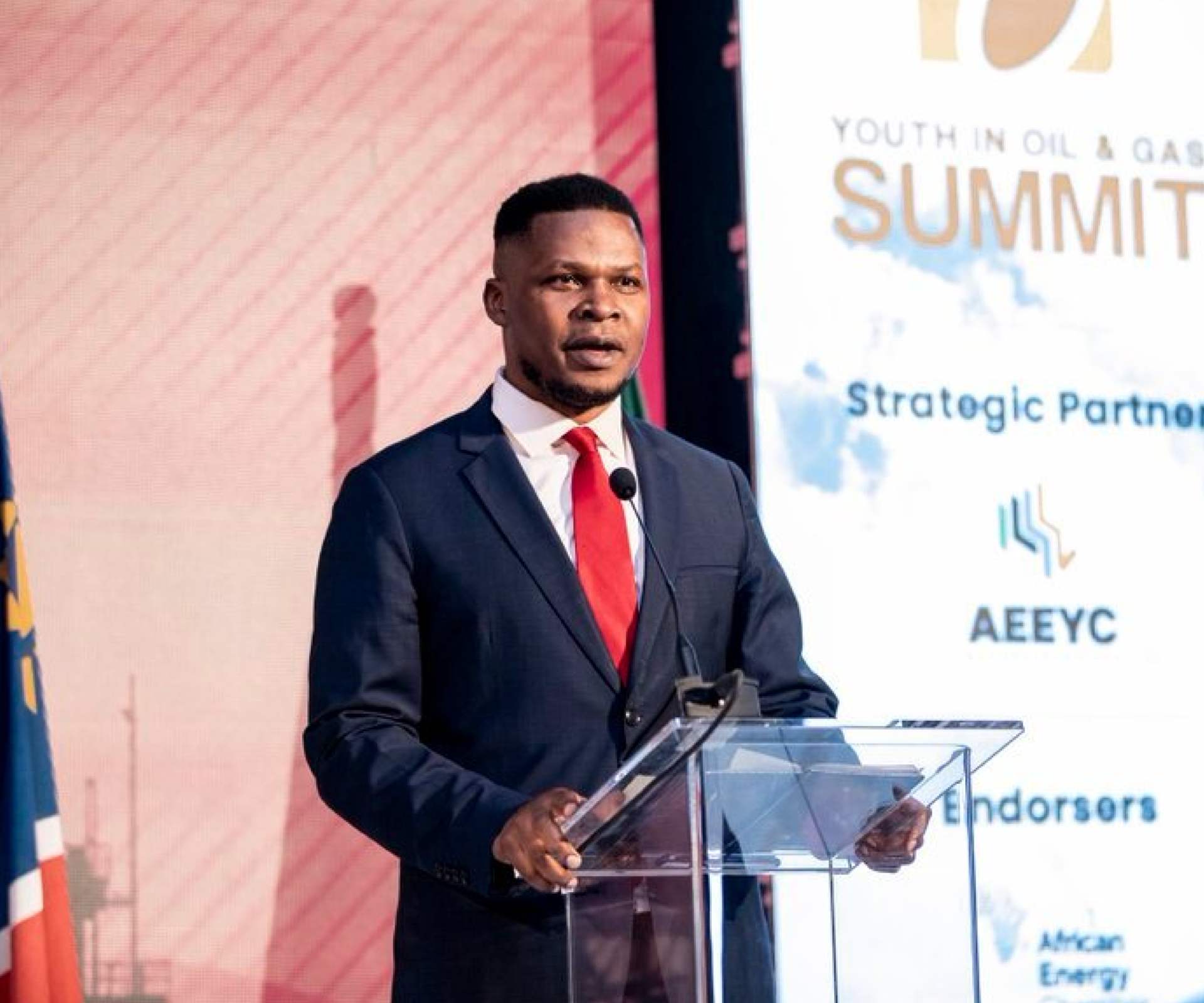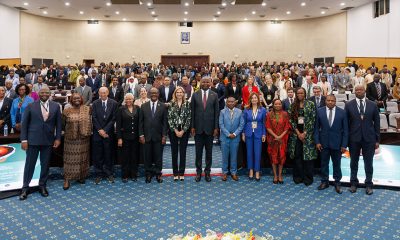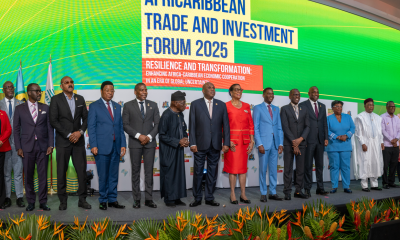Africa
African Energy Chamber Advocates for Namibia’s Youth-Led Energy Future
Namibia’s emerging oil and gas sector is set to become a cornerstone of national economic development, with youth empowerment, skills training, infrastructure readiness and policy reform forming key pillars of its long-term strategy. Speaking at the second edition of the Youth in Oil and Gas Summit held in Walvis Bay, NJ Ayuk, Executive Chairman of the African Energy Chamber (AEC) (https://EnergyChamber.org), discussed the importance of inclusive participation in the energy sector, calling for stronger public-private collaboration to ensure Namibia’s resources deliver impact for local communities.
As Namibia prepares for first oil from major offshore discoveries in the Orange Basin – led by global energy players such as TotalEnergies, Shell, Galp and Chevron – the summit spotlighted the need for foundational capacity building, including STEM education, vocational training and investment in youth entrepreneurship. The event, spearheaded by Justina Erastus, and supported by key national institutions such as Petrofund, emphasized local ownership and workforce integration as the industry scales up.
“A future that speaks to the hearts and minds of all Namibians is a future that speaks to the hearts of every Africa,” Ayuk stated, adding, “When we see what you are building for your country, we know the future is bright.”
According to the AEC, Namibia’s anticipated offshore production will require robust support infrastructure ranging from marine services and logistics hubs to data centers and grid-connected baseload power. Ayuk highlighted that energy demand linked to digital infrastructure – including AI, cloud computing and data storage would require consistent, large-scale electricity generation. This positions Namibia’s oil and natural gas sector as a potential anchor for industrial development.
While acknowledging global climate priorities, the AEC emphasized that Namibia and other African nations must have the right to leverage their natural resources to combat energy poverty. With Africa contributing less than 3% to global greenhouse gas emissions, the Chamber maintained that international climate policies must account for the continent’s development needs.
“There are forces around the globe telling us that climate change is the problem. But how do you think Europe became what it is? How do you think America became what it is? How do you think Asia became what it is? They use oil. They use coal. They make billions for themselves. And right now, they tell you in this country, you don’t deserve the right to use your oil. We don’t agree with that,” Ayuk stated.
When we see what you are building for your country, we know the future is bright
Institutional partners such as Petrofund were recognized for their role in providing scholarships and technical training for Namibians, especially women and youth. Petrofund’s investment in vocational education and postgraduate studies has directly supported the country’s efforts to create a skilled workforce ready to meet industry demand.
Ayuk also called on industry players, government and academia to create synergy around youth capacity building. He urged energy companies operating in Namibia to commit to meaningful local content policies and to make space for young professionals in both technical and leadership roles.
“We’ve got to figure out how to make industries more accommodating to young women. Globally, we’ve seen less than 70% women in the oil and gas industry. That’s not enough,” Ayuk added.
The summit also underscored the importance of regulatory and policy coherence to support industrial growth. The AEC reaffirmed its support for ongoing efforts by Namibia’s Upstream Petroleum Unit to align national frameworks with global best practices, while tailoring them to the country’s unique socioeconomic landscape.
Namibia’s growing energy ecosystem, including downstream infrastructure, local fabrication capacity and training institutions, stands to benefit from strategic investments aligned with long-term goals. The AEC maintains that a balanced, pragmatic approach to energy – one that includes both hydrocarbons and renewables – will allow Namibia to transition sustainably while building wealth and creating jobs.
“It starts with you. It starts with what role you want to play. And the role you have to play that shaped the future. You represent that,” Ayuk
Comments
























